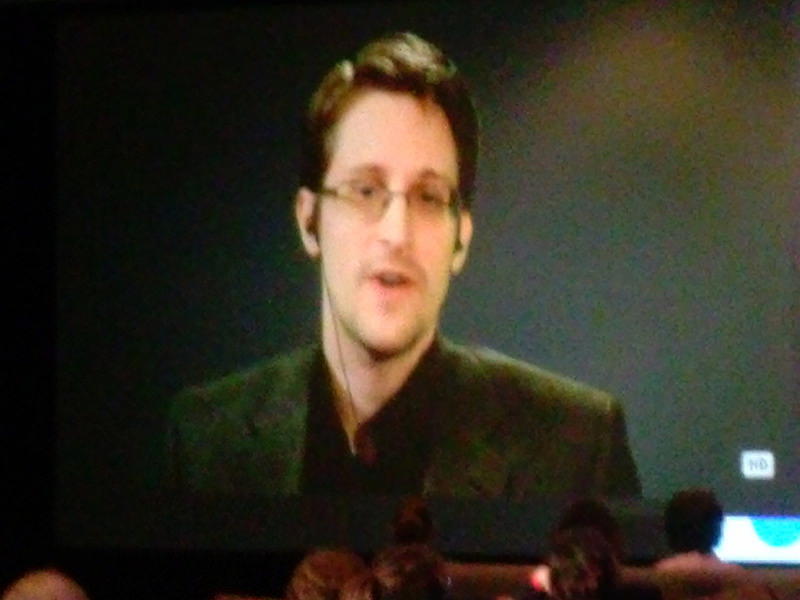| The question was simple enough. Is Edward Snowden a hero or a traitor? It may have been the shortest one Anderson Cooper asked during the first debate among Democratic candidates for president on Tuesday. But if there is any issue that transcends the predictable left-right political responses that dominate the Internet and talk radio, this is it. That’s true even though, let’s face it, bad guys no longer make a lot of domestic cell phone calls; and even though it’s unclear whether Snowden and the National Security Agency will play any role in next year’s election. |
| | The answer to the question pits two competing values important to Americans and their families against each other. We want our lives and homes protected from terrorism, and yet we demand to be free from the random search-and-seizure methods of a government we now know, thanks to Snowden, has been collecting data from our phones and computers. It’s the old security vs. freedom conundrum, summed up in the complicated person of a man who calls himself a patriot but who took refuge in Russia, a nation whose army currently is complicating the president’s anti-ISIS efforts in Syria. For the record, Lincoln Chafee, the former Rhode Island governor, was the only Democratic candidate on stage who unabashedly characterized Snowden as a hero. “I would bring him home,” he said. No trial, no jail time; presumably just a stamp on the passport and a quick, “Welcome home” from a customs agent. Viewers may have been deciding whether to be more surprised by his response or by the fact that someone named Lincoln Chafee is running for president. Opinion polls Tuesday placed his support at somewhere between zero and 1 percent. With the margin of error, it could be even lower. Hillary Clinton staked the opposite position. “He (Snowden) stole very important information that has unfortunately fallen into a lot of the wrong hands,” she said. “So I don’t think he should be brought home without facing the music.” Vermont Sen. Bernie Sanders grabbed the mushy middle, saying Snowden broke the law but that the benefits of what he did should be considered, too. Republican candidates, even the Libertarian-leaning Rand Paul, sound a lot like Hillary on this one. And a Republican congressman who isn’t running for president, Utah’s Chris Stewart, was quoted by the Deseret News on Wednesday emphatically branding Snowden as “one of the most destructive traitors that American has ever seen in our history.” I’m guessing a lot of Americans want to tromp through the mushy middle with Bernie on this one. They don’t like the government intrusion, but they think there is something fishy about giving secrets away and renting an apartment in Russia. In truth, the details of this debate are largely meaningless. Telephone data and emails no longer are so relevant. Congress has passed a law that puts more safeguards on eavesdropping, but the bad guys have long since moved on. They’re into using encrypted corners of the Internet. They’re hacking away at everything from the Pentagon to your bank account. They’re working hard to destroy public confidence in retail and financial institutions. But the basic struggle between freedom and security remains relevant. And, of course, we are left with Snowden and his future. Two things might make him more prominent as the 2016 election approaches. One is his scheduled Dec. 5 speech via video to a cybersecurity conference in Park City. Despite his recent appearance on Twitter, Snowden hasn’t made many public appearances. The other is the possibility the Obama administration might make a deal to bring him home and put him on trial. That seems unlikely at the moment. That’s a pity, because the issues his case represents deserve to be part of a national dialog. Hero or traitor? Freedom or security? Stewart said some of the information Snowden stole would “make your head explode.” Perhaps that makes the thought of a public trial seem at once more enticing and less likely. It would be good, however, to have a thorough hearing on what’s at stake in a dangerous world, regardless of the political consequences. |


 RSS Feed
RSS Feed

